BLOG
MARKET INTEL by PharmaCompass
CONTENT by Suppliers
- Interview #SpeakPharma
- Video #SupplierSpotlight
- Vlog #PharmaReel
- Company Bio #AboutSupplier
- Service Bio #AboutCapabilities
News
Create content with us, ask us


- AEROSOL
- BIOLOGIC DRUGS
- CAPSULE
- CREAM / LOTION / OINTMENT
- ELIXIR
- EMULSION
- FILM
- GEL
- GRANULE / PELLET
- DIETARY SUPPLEMENT (NUTRACEUTICAL)
- INJECTABLE / PARENTERAL
- LIPOSOME / MICROSPHERE / NANOPARTICLE
- LIQUID
- MEDICAL DEVICE
- PASTE
- PATCH
- PESSARY
- POWDER
- SOFTGEL CAPSULE
- SOLUTION
- SPRAY
- SUPPOSITORY
- SUSPENSION
- SYRUP
- TABLET
- VETERINARY
- NASAL
- TROCHE & LOZENGE
- LYOPHILIZATION
- DENTAL
- RAW MATERIALS
- TECHNOLOGIES
- EQUIPMENT
- COMPOUNDING

01 Antibody Drug Conjugate
02 Antibody Drug Conjugate
03 DNA / RNA
04 High Potent
05 Monoclonal Antibody
06 Monoclonal Antibody
07 Others
08 Others
09 Others
10 Overview
11 Protein / Peptide
12 Vaccine
13 Vaccine

01 3PBiovian
02 53Biologics
03 AGC Biologics
04 APC Ltd
05 AbbVie Contract Manufacturing
06 Aenova Group
07 Batavia Bioscience
08 Bavarian Nordic
09 BioTechnique
10 Biological E
11 Biomay
12 Biopharma Group
13 Bora Pharmaceuticals
14 CZ Vaccines
15 Catalent Pharma Solutions
16 Charles River Laboratories, Inc
17 Curia
18 Dalton Pharma Services
19 Emergent BioSolutions
20 Eurofins CDMO
21 Fareva
22 Fluart Innovative Vaccines
23 Grand River Aseptic Manufacturing
24 IDT Biologika GmbH
25 Injectalia Srl
26 Lubrizol Life Science Health
27 NorthX Biologics
28 Oncomed Manufacturing A.S
29 Orofino Pharmaceuticals Group
30 PANPHARMA
31 Pfizer CentreOne
32 Piramal Pharma Solutions
33 Richter Helm Biologics GmbH and Co KG
34 Siegfried AG
35 Skyepharma
36 Stason Pharmaceuticals, Inc.
37 Symbiosis Pharmaceutical Services
38 Touchlight
39 TriLink BioTechnologies
40 VGXI

01 Austria
02 Canada
03 Czech Republic
04 Denmark
05 France
06 France
07 Germany
08 Germany
09 Hungary
10 India
11 Ireland
12 Italy
13 Luxembourg
14 Netherlands
15 Spain
16 Sweden
17 Switzerland
18 Taiwan
19 U.S.A
20 U.S.A
21 U.S.A
22 United Kingdom
- Analytical > Analytical Method Development
- Analytical > Analytical Testing Services > Inhalation Products
- Analytical > BioAnalytical Services
- API & Drug Product Development > API Development
- API & Drug Product Development > API Development > Antibody Drug Conjugate
- API & Drug Product Development > API Development > Fine Chemical / Intermediate
- API & Drug Product Development > API Development > High Potency APIs (HPAPIs)
- API & Drug Product Development > API Development > Impurity / Reference Standard
- API & Drug Product Development > API Development > Oligonucleotide / Polynucleotide
- API & Drug Product Development > API Development > Oligosaccharides & Polysaccharides
- API & Drug Product Development > API Development > Overview
- API & Drug Product Development > API Development > Process Development & Optimization
- API & Drug Product Development > API Development > Protein / Peptide
- API & Drug Product Development > API Development > Separation & Purification
- API & Drug Product Development > API Development > Small Molecules
- API & Drug Product Development > API Development > Spray Drying
- API & Drug Product Development > Formulation Development
- API & Drug Product Development > Formulation Development > Buccal / Orodispersible
- API & Drug Product Development > Formulation Development > Capsule
- API & Drug Product Development > Formulation Development > Chewable / Suckable
- API & Drug Product Development > Formulation Development > Clinical Supply
- API & Drug Product Development > Formulation Development > Compounding
- API & Drug Product Development > Formulation Development > Controlled / Immediate / Modified Release
- API & Drug Product Development > Formulation Development > Controlled Substance
- API & Drug Product Development > Formulation Development > Granule / Pellets
- API & Drug Product Development > Formulation Development > Inhalation / Nasal
- API & Drug Product Development > Formulation Development > Injectable / Parenteral
- API & Drug Product Development > Formulation Development > Liquid Formulation
- API & Drug Product Development > Formulation Development > Lyophilization
- API & Drug Product Development > Formulation Development > Ophthalmic
- API & Drug Product Development > Formulation Development > Pediatric Formulation
- API & Drug Product Development > Formulation Development > Scale-Up Capabilities
- API & Drug Product Development > Formulation Development > Sterile Liquid Formulation
- API & Drug Product Development > Formulation Development > Suspension
- API & Drug Product Development > Formulation Development > Tablet
- API & Drug Product Development > Formulation Development > Topical
- API & Drug Product Development > Preformulation & Material Science > Particle Size Reduction & Micronization
- API & Drug Product Development > Preformulation & Material Science > Polymorph & Crystal Screening
- API & Drug Product Development > Preformulation & Material Science > Solubility Assessment & Enhancement
- API & Drug Product Development > Preformulation & Material Science > Taste Masking
- API Manufacturing > Antibiotic
- API Manufacturing > Antibody Drug Conjugate
- API Manufacturing > Biologics, Bioprocess & Fermentation
- API Manufacturing > Chiral Synthesis
- API Manufacturing > Clinical Supply
- API Manufacturing > Continuous Flow Process
- API Manufacturing > Contract Manufacturing
- API Manufacturing > Controlled Substance
- API Manufacturing > Custom Synthesis & Manufacturing
- API Manufacturing > Cytotoxic Compound
- API Manufacturing > Drying > Spray Drying
- API Manufacturing > Fine Chemical / Intermediate
- API Manufacturing > GMP Manufacturing
- API Manufacturing > Hazardous Chemistry
- API Manufacturing > High Potency APIs (HPAPIs)
- API Manufacturing > Micronization
- API Manufacturing > Oligonucleotide / Polynucleotide
- API Manufacturing > Oligosaccharides & Polysaccharides
- API Manufacturing > Organometallic Chemistry
- API Manufacturing > Organometallic Chemistry > Cyanation
- API Manufacturing > Organometallic Chemistry > Metal Hydride Reduction
- API Manufacturing > Ozonolysis
- API Manufacturing > Process Development & Optimization
- API Manufacturing > Protein / Peptide > Synthesis
- API Manufacturing > Reference Standard
- API Manufacturing > Scale Up
- API Manufacturing > Separation & Purification
- API Manufacturing > Small Molecules
- Clinical Trials > Compliance, Regulatory & Consulting
- Clinical Trials > Packaging & Logistics
- Clinical Trials > Medical Writing & Language Translation
- Clinical Trials > Patient / Investigator Recruitment
- Clinical Trials > Technology / Data / Analytics
- Drug Product Manufacturing > Biologic Drugs
- Drug Product Manufacturing > Capsule
- Drug Product Manufacturing > Capsule > Steroid / Hormone
- Drug Product Manufacturing > Compounding
- Drug Product Manufacturing > Cream / Lotion / Ointment
- Drug Product Manufacturing > Emulsion > Overview
- Drug Product Manufacturing > Gel > Overview
- Drug Product Manufacturing > Granule / Pellet
- Drug Product Manufacturing > Injectable / Parenteral
- Drug Product Manufacturing > Injectable / Parenteral > Overview
- Drug Product Manufacturing > Injectable / Parenteral > Pre-Filled Syringe
- Drug Product Manufacturing > Liquid
- Drug Product Manufacturing > Lyophilization
- Drug Product Manufacturing > Nasal
- Drug Product Manufacturing > Softgel Capsule
- Drug Product Manufacturing > Solution > Overview
- Drug Product Manufacturing > Spray
- Drug Product Manufacturing > Suppository
- Drug Product Manufacturing > Suspension > Overview
- Drug Product Manufacturing > Syrup
- Drug Product Manufacturing > Tablet
- Drug Product Manufacturing > Technologies
- Drug Product Manufacturing > Technologies > Orally Disintegrating Tablets (ODTs)
- Drug Product Manufacturing > Technologies > Taste Masking
- Packaging > Clinical Services
- Packaging > Contract Services
- Packaging > Contract Services > Serialization Compliance
- Packaging > Logistic Services
- Empty Capsules
- Empty Capsules > Clinical Supply
- Empty Capsules > HardGel
- Empty Capsules > Inhalation
- Emulsifying Agents
- Soft Gelatin
- Solubilizers
Overview of biologic molecules, monoclonal antibodies (mAb) & biopharmaceutical contract manufacturing services offered by leading CMOs & CDMOs.
Q1. What are biological drug products?
A biological product is defined as “a virus, therapeutic serum, toxin, antitoxin, vaccine, blood, blood component or derivative, allergenic product, analogous product, or any other trivalent organic arsenic compound, applicable to the prevention, treatment or cure of a disease or condition of human beings".
Biological products are regulated by the Food and Drug Administration (FDA) and are used to diagnose, prevent, treat, and cure various diseases and medical conditions. Furthermore, biological products encompass a diverse category of products, generally large and complex molecules or mixtures of molecules.
Biological products (biopharmaceutical products) — biologics — may be referred to as biologic response modifiers because they change the manner of operation of natural biologic intracellular and cellular actions. These biological medications tend to be at the forefront of medical advances today. Gene-based and cellular biologics, for example, are now making it possible to treat some illnesses where no other treatments were available.
Biologics can be composed of sugars, proteins, or nucleic acids or complex combinations of these substances, or they may be living entities such as cells and tissues. The first biologic, human insulin, was marketed in 1982. Today, biologics are one of the fastest growing segments of the prescription pharmaceutical product market.
Biologic drugs have also vastly improved the treatment of conditions such as rheumatoid arthritis, anemia, leukopenia, inflammatory bowel disease, psoriasis, and various forms of cancer. There are various types of biologics including vaccines, antitoxins, recombinant proteins, interleukins and monoclonal antibodies. Among these, monoclonal antibodies (mAb or moAb) are the most commonly used biologics.
Monoclonal antibodies (mAb or moAb) are identical immunoglobulins, generated from a single B-cell clone. These antibodies recognize unique epitopes, or binding sites, on a single antigen. Derivation from a single B-cell clone and subsequent targeting of a single epitope is what differentiates monoclonal antibodies from polyclonal antibodies. This has become an important tool in biochemistry, molecular biology, and medicine.
The use of monoclonal antibodies to treat diseases is called immunotherapy because each type of monoclonal antibody will target a specific antigen in the body. Monoclonal antibodies are used for treating psoriasis, ulcerative colitis, Crohn's disease, cancer, cardiovascular disease, multiple sclerosis and rheumatoid arthritis.
Biological formulations play a central role in combating human diseases, however, developing new successful biologic drugs presents many challenges, including labor intensive production processes, tighter regulatory controls, and increased market competition.
The drug substances in biological products are often too complex to be fully characterized by utilizing physico-chemical testing methods and may show a marked heterogeneity from one preparation to the next. Therefore, special considerations should be taken in performing contract manufacturing for biological drug products in order to maintain the consistency in the quality of pharmaceutical products.
Some examples of medical diseases treated via biologic drugs include:
- Cancers
- Rheumatoid arthritis
- Crohn's disease
- Ulcerative colitis
- Psoriasis
- Diabetes
- Multiple sclerosis (MS)
- Anemia
- Chronic migraine
- Hepatitis B
- Hemophilia
- Osteoporosis
- Infertility
- Cystic fibrosis
Q2. What are the different types of biological drug products?
Biologic drugs are used for the treatment of numerous diseases and conditions, and are some of the most advanced therapies available. Biologics treat a broad range of common and rare diseases and include vaccines, cell and gene therapies, tissues for transplants, and more.
Biologics can be classified into two broad categories:
Antigens: A toxin or another foreign substance that induces an immune response in the body, especially the production of antibodies. Examples of antigens directly concerned in infectious diseases include exotoxins, proteins, etc.
Antibodies: Specialized cells of the immune system which can recognize organisms that invade the body (such as bacteria, viruses, and fungi). Antibodies are able to set off a complex chain of events designed to kill foreign invaders that enter the body.
- Monoclonal antibodies: Monoclonal antibodies (mAb or moAb) are identical immunoglobulins, generated from a single B-cell clone.
Biological drug products (biopharmaceutical products) can also be classified according to their pharmacological action and therapeutic applications into the following types:
I. Replacement protein therapeutics with enzymatic or regulatory activity
(E.g. Recombinant proteins - Insulin)
II. Protein therapeutics binding specific targets
(E.g. Enzymes)
III. Protein-based prophylactic vaccines
(E.g. Vaccines)
IV. Diagnostic proteins
(E.g. Antibodies)
Some important biological dosage forms are explored in detail below:
- Sterile liquids
Sterile liquid products are liquid dosage forms of therapeutic agents that are free from viable microorganisms. Many sterile liquid products are available commercially and can be classified according to their volume, use, and physical state. Sterile liquid manufacturing products may be used in intravenous preparations, irrigation solutions, hemofiltration, biologics, etc.
- Prefilled syringes
A pre-filled syringe is defined as a disposable syringe that is already loaded with a therapeutic substance meant to be injected into the body. Alternatively, a pre-filled syringe is a single dose of medication to which a needle has been fixed by manufacturers.
The use of prefilled syringes (PFS) is a modern way to administer drugs, such as parenterals and biologics. With achievements in science and technology in the past twenty years an increasing number of complex sterile injectables utilize prefilled syringes.
- Sterile vials
Vials are small bottles that contain a drug, especially a sealed sterile container for injection by needles. Vials have overtaken ampoules as the delivery method of choice for many biologic and parenteral products due to a lower risk of breakage and contamination.
- Sterile Injectable formulations
Injectable formulations are sterile preparations containing one or more active ingredients intended for administration by injection, infusion or implantation into the body. They are packaged in either single-dose or multidose containers.
The production of injectable preparations involves sterile liquids manufacturing of solutions or suspensions of drugs in aqueous or oily vehicles meant for introduction into the body by means of an injectable needle under or through one or more layers of the skin or mucous.
Some of the general classes of biologics include:
- Blood or other blood products
(E.g. platelets)
- Steroid hormone therapies
(E.g. estrogen, testosterone)
- Vaccines
(E.g. for disease prevention)
- Antitoxins
(E.g. to treat a snakebite)
- Recombinant proteins
(E.g. insulin or erythropoietin)
- Interleukins
(E.g. immune molecules that can be used to treat certain infections and cancers)
- Tendons, ligaments, or other materials used for transplantation
- Monoclonal antibodies
(E.g. those used to treat autoimmune diseases and cancer)
- Stem cell therapies
(E.g. for certain cancers or genetic diseases)
- Other cell therapies
(E.g. specific T cells used to treat cancer)
- Gene therapies
(E.g. those for genetic conditions)
Q3. What are the different steps involved in the development and manufacturing of biological formulations?
The production of therapeutic biological products (biopharmaceutical products) involves biopharmaceutical process development and biological manufacturing processes, such as cultivation of cells or extraction of substances from living organisms, including human, animal and plant tissues.
General steps involved in the development & GMP (Good Manufacturing Practices) manufacturing or contract manufacturing of biological drug products, include:
I. Formulation Development of Biological Molecules
The formulation development of biological molecules involves biopharmaceutical process development where genes of interest and a suitable wild vector are chosen and combined to produce an expression vector. This is followed by the selection of a host cell, after which the expression vector is introduced into the host cell to create a protein expression system that can produce clones (cell cultures) of the gene of interest.
II. Cell Banks
Following biopharmaceutical process development comes the cell bank production stage of biologics contract manufacturing. Scientists take a selection of the type of cell they would like to store and then grow that cell in what is called a cell culture. Once a stock or cell bank of cells is created from the host cell, anyone has access to copies of that cell’s DNA. Besides the production of cell banks, characterization also takes place during this stage.
- Master Cell Bank
A Master Cell Bank (MCB) is produced from the original therapeutic-producing cell line. It is cryopreserved in multiple vials to prevent genetic variation and potential contamination by eliminating the total number of times a cell line is passed or handled during the biologics contract manufacturing process.
A master cell bank is critical to therapeutic product development and supports not only clinical pharmaceutical development and biological manufacturing but also the commercial supply phase for biologics. From the master cell line, a working cell bank is produced to ensure high quality production from scale up to manufacture.
- Working Cell Bank
A Working Cell Bank (WCB) is more commonly required at the later stages of therapeutic development and contract manufacturing of biologics. This bank is produced from a single vial of the master cell bank (MCB) that has been grown for several passages and cryopreserved.
III. Drug Substance Production (Purification)
In the next stage, cells from the working cell bank undergo purification, the removal of host cell impurities through centrifugation, filtration, and chromatography, using target conditions. Therefore, downstream processing or purification is focused on the capture and isolation of the target molecule or drug substance and the removal of impurities.
Thus, separation and purification processes employed during the manufacturing of biological formulations, separates a biological drug substance into its respective components followed by the removal of impurities or purification.
IV. Parenteral Sterile Solution Filtration
It is critical that drug products are free from bacteria and other microorganisms to ensure patient safety, especially for biological drugs & parenteral drugs. In the contract manufacturing of biologics, drug substance purification is followed by sterile filtration. Sterilizing filtration is now commonplace in pharmaceutical cGMP manufacturing and is used in order to prevent microbial contamination from negatively impacting drug quality and, more importantly, to ensure patient safety. Sterilizing filtration is thus involved in sterile liquids manufacturing, which comes under sterile and non sterile contract manufacturing services.
V. Aseptic Filling
Aseptic filling of sterile drugs, also known as sterile aseptic fill and finish, remains one of the most critical processes in biological manufacturing. This is due to its highly technique driven processes and the potential safety impact to the end user, usually an already compromised patient.
Aseptic filling or aseptic biologic filling is carried out to package therapeutic formulations into their primary containers, such as pre-filled syringes (PFS) or filling of ampoules. An aseptic filler is designed to sterilize the package material, which involves the aseptic fill and finish of the parenteral sterile solution (parenteral drug) or biological drug product into a package in a sterile environment, which is then hermetically sealed.
Aseptic biologic filling processes are followed by further sterilization, inspection, labelling and secondary packaging, after which the biological drug products are ready for commercialization. A drug product transfers a biological molecule (biologic drug substance) into a form that will be usable by patients. It contains the active ingredient with excipients and may include packaging or a device for administration.
Q4. Which are the leading contract manufacturers offering biological drug products?
There are many pharma contract manufacturers (CMOs) offering contract manufacturing for biological drug products, parenteral sterile solutions and non-sterile liquid formulations. The leading CMOs offering manufacturing of biological formulations, parenteral drugs, and contract manufacturing of sterile liquids, amongst other services, include:
Orofino Pharmaceuticals Group / Injectelia
Orofino Pharmaceuticals Group (OPG) consists of a range of companies specialized in third-party pharmaceutical cGMP manufacturing contract services offering sterile drug product manufacturing and providing customers high-quality contract services at a competitive cost. The production essentially aims at the high-quality level of the GMP (Good Manufacturing Practices) manufacturing process at competitive prices.
Injectalia is located in Rome's industrial area of Pomezia and started its activity in 2005. The facility was bought over and revamped by the Orofino Pharmaceuticals Group. Today Injectalia, after some important investments in new technologies, in segregated buildings, mainly manufactures pharmaceutical products under different formulations such as syringes, pre-filled syringes for beta lactams, vials, aseptic biologic filling of solutions, diluents filling of ampoules, etc.
Injectelia therefore functions as a contract manufacturer for sterile injectables and offers sterile and non sterile contract manufacturing along with filling of ampoules and various other services. Furthermore, Injectalia is certified by AIFA, FDA and serves as a biologics CMO for contract manufacturing of sterile liquids, non-sterile liquid formulations, small volume injectables for hormones and biologicals.
Oncomed Manufacturing
Oncomed manufacturing a.s. is a Contract Development and Manufacturing Organisation (CDMO) or pharmaceutical outsourcing organization and biologics CMO focused on the production of high potent and anticancer (cyto) injectables on clinical and commercial scales including large molecules, small molecule APIs (end-to-end solution) and more innovative large molecule drugs, like ADCs, HPAPI proteins and mAb and oligonucleotides. Their bio aseptic fill and finish contract services include different biomolecules (biologic molecules) such as antibodies, ADCs, peptides, proteins and oligonucleotides.
AMRI
Albany Molecular Research Inc, or AMRI, is a global contract research and pharmaceutical outsourcing organization that has been working with the life sciences industry to improve patient outcomes and the quality of life for more than two decades.
AMRI offers expertise and capabilities to manufacture proteins and peptides along with sterile drug product manufacturing. They also provide a complete suite of contract services for all sterile dosage forms — routinely handling nearly every category of sterile liquids, small volume injectables, lyophilized biological or pharmaceutical product, aseptic fill & finish terminally sterilized on a commercial-sized scale. AMRI also functions as a contract manufacturer for sterile injectables along with providing services for the contract manufacturing of sterile liquids and biological formulations.
Eurofins CDMO
Eurofins CDMO provides integrated, end-to-end pharmaceutical development and pharmaceutical outsourcing services for drug substances, APIs and contract manufacturing for biological drug products, small & large molecules. They are experts for highly potent compounds, poorly soluble drugs, lyophilisation processes, orphan drugs, paediatric formulations, sterile drug product manufacturing, non-sterile liquid formulations, small volume injectables, etc. Their contract services include: API/DS Development, Solid State R&D, Preformulation, Formulation Development, Good Manufacturing Practices (GMP) manufacturing, Clinical Packaging and Logistics, and CMC Regulatory Support.
Eurofins CDMO delivers solutions to its customers for the formulation development and biologics contract manufacturing of a broad range of biologic molecules and product types (antibodies, proteins, enzymes, vaccines. etc.). Eurofins also serves as biologics CMO and offers raw material testing services for biologics along with formulation development services. Eurofins BioPharma Product Testing is well-versed in evaluating the identity, purity, potency and quality of a diverse range of materials used in a wide array of bioprocesses, using established GMP methods, as well as customized methods developed to fit unique client needs.
Eurofins CDMO therefore serves as a contract manufacturer of sterile injectable formulations and biological drug products, while offering various other sterile and non sterile contract manufacturing services such as contract manufacturing of sterile liquids.
All Suppliers
01
Pharma Service : Drug Product Manufacturing
Category : Biologic Drugs
Sub Category : Antibody Drug Conjugate
Pharma Service : Drug Product Manufacturing
02
Pharma Service : Drug Product Manufacturing
03
Pharma Service : Drug Product Manufacturing
MANUFACTURING FOR MONOCLONAL ANTIBODIES
Category : Biologic Drugs
Sub Category : Monoclonal Antibody
Pharma Service : Drug Product Manufacturing
04
Pharma Service : Drug Product Manufacturing
05
Pharma Service : Drug Product Manufacturing
BIOLOGICAL PRODUCT MANUFACTURING
Category : Biologic Drugs
Sub Category : Others
Pharma Service : Drug Product Manufacturing
06
Pharma Service : Drug Product Manufacturing
BIOLOGIC DRUG PRODUCT MANUFACTURING
Category : Biologic Drugs
Sub Category : Overview
Pharma Service : Drug Product Manufacturing
07
Pharma Service : Drug Product Manufacturing
08
Pharma Service : Drug Product Manufacturing
LIQUID INJECTABLE ADC FILL-FINISH SERVIC...
Category : Biologic Drugs
Sub Category : Antibody Drug Conjugate
Pharma Service : Drug Product Manufacturing
09
Pharma Service : Drug Product Manufacturing
MONOCLONAL ANTIBODIES PRODUCTS
Category : Biologic Drugs
Sub Category : Monoclonal Antibody
Pharma Service : Drug Product Manufacturing
10
Pharma Service : Drug Product Manufacturing
11
Pharma Service : Drug Product Manufacturing
12
Pharma Service : Drug Product Manufacturing
MANUFACTURING OF BIOLOGICAL FINISHED PRO...
Category : Biologic Drugs
Sub Category : Others
Pharma Service : Drug Product Manufacturing
13
Pharma Service : Drug Product Manufacturing
14
Pharma Service : Drug Product Manufacturing
Category : Biologic Drugs
Sub Category : Protein / Peptide
Pharma Service : Drug Product Manufacturing
15
Pharma Service : Drug Product Manufacturing
16
Pharma Service : Drug Product Manufacturing
ANTIBODY DRUG CONJUGATE (ADC) MANUFACTUR...
Category : Biologic Drugs
Sub Category : Antibody Drug Conjugate
Pharma Service : Drug Product Manufacturing
17
Pharma Service : Drug Product Manufacturing
DEVELOPMENT & MANUFACTURING OF VACCINES
Category : Biologic Drugs
Sub Category : Vaccine
Pharma Service : Drug Product Manufacturing
18
Pharma Service : Drug Product Manufacturing
19
Pharma Service : Drug Product Manufacturing
Category : Biologic Drugs
Sub Category : Antibody Drug Conjugate
Pharma Service : Drug Product Manufacturing
20
Pharma Service : Drug Product Manufacturing
Category : Biologic Drugs
Sub Category : Monoclonal Antibody
Pharma Service : Drug Product Manufacturing
21
Pharma Service : Drug Product Manufacturing
Category : Biologic Drugs
Sub Category : Protein / Peptide
Pharma Service : Drug Product Manufacturing
22
Pharma Service : Drug Product Manufacturing
BIOLOGICAL DRUG PRODUCT MANUFACTURING
Category : Biologic Drugs
Sub Category : Others
Pharma Service : Drug Product Manufacturing
23
Pharma Service : Drug Product Manufacturing
24
Pharma Service : Drug Product Manufacturing
HPAPI / CYTOTOXICS - BIOLOGICS MANUFACTU...
Category : Biologic Drugs
Sub Category : High Potent
Pharma Service : Drug Product Manufacturing
25
Pharma Service : Drug Product Manufacturing
SOLUTIONS FOR VIRAL VACCINE PRODUCTION
Category : Biologic Drugs
Sub Category : Others
Pharma Service : Drug Product Manufacturing
26
Pharma Service : Drug Product Manufacturing
Category : Biologic Drugs
Sub Category : Antibody Drug Conjugate
Pharma Service : Drug Product Manufacturing
27
Pharma Service : Drug Product Manufacturing
PROTEIN & PEPTIDE DRUG PRODUCT MANUFACTU...
Category : Biologic Drugs
Sub Category : Protein / Peptide
Pharma Service : Drug Product Manufacturing
28
Pharma Service : Drug Product Manufacturing
MONOCLONAL ANTIBODY STERILE DRUG PRODUCT...
Category : Biologic Drugs
Sub Category : Monoclonal Antibody
Pharma Service : Drug Product Manufacturing
29
Pharma Service : Drug Product Manufacturing
MANUFACTURING OF STERILE BIOLOGICAL PROD...
Category : Biologic Drugs
Sub Category : Others
Pharma Service : Drug Product Manufacturing
30
Pharma Service : Drug Product Manufacturing
ANTIBODY DRUG CONJUGATE FILL & FINISH
Category : Biologic Drugs
Sub Category : Antibody Drug Conjugate
Pharma Service : Drug Product Manufacturing
31
Pharma Service : Drug Product Manufacturing
32
Pharma Service : Drug Product Manufacturing
OFF-THE-SHELF DOGGYBONE DNA (dbDNA) PROD...
Category : Biologic Drugs
Sub Category : DNA / RNA
Pharma Service : Drug Product Manufacturing
33
Pharma Service : Drug Product Manufacturing
DNA FOR DNA VACCINE PRODUCTION
Category : Biologic Drugs
Sub Category : Vaccine
Pharma Service : Drug Product Manufacturing
34
Pharma Service : Drug Product Manufacturing
DNA VECTOR & ENZYMATIC MANUFACTURING PRO...
Category : Biologic Drugs
Sub Category : DNA / RNA
Pharma Service : Drug Product Manufacturing
35
Pharma Service : Drug Product Manufacturing
36
Pharma Service : Drug Product Manufacturing
37
Pharma Service : Drug Product Manufacturing
DNA FOR NON-VIRAL GENE THERAPY
Category : Biologic Drugs
Sub Category : DNA / RNA
Pharma Service : Drug Product Manufacturing
38
Pharma Service : Drug Product Manufacturing
39
Pharma Service : Drug Product Manufacturing
DOGGYBONE DNA (dbDNA) SYNTHETIC DNA VECT...
Category : Biologic Drugs
Sub Category : DNA / RNA
Pharma Service : Drug Product Manufacturing
40
Pharma Service : Drug Product Manufacturing
41
Pharma Service : Drug Product Manufacturing
42
Pharma Service : Drug Product Manufacturing
DEVELOPMENT & MANUFACTURING OF PLASMID D...
Category : Biologic Drugs
Sub Category : DNA / RNA
Pharma Service : Drug Product Manufacturing
43
Pharma Service : Drug Product Manufacturing
MANUFACTURING OF PLASMID DNA (pDNA)
Category : Biologic Drugs
Sub Category : DNA / RNA
Pharma Service : Drug Product Manufacturing
44
Pharma Service : Drug Product Manufacturing
45
Pharma Service : Drug Product Manufacturing
46
Pharma Service : Drug Product Manufacturing
PLASMID DNA MANUFACTURING SERVICES
Category : Biologic Drugs
Sub Category : DNA / RNA
Pharma Service : Drug Product Manufacturing
47
Pharma Service : Drug Product Manufacturing
48
Pharma Service : Drug Product Manufacturing
VIRAL VACCINE MANUFACTURING SERVICES
Category : Biologic Drugs
Sub Category : Vaccine
Pharma Service : Drug Product Manufacturing
49
Pharma Service : Drug Product Manufacturing
CONTRACT MANUFACTURING FOR VACCINES
Category : Biologic Drugs
Sub Category : Vaccine
Pharma Service : Drug Product Manufacturing
50
Pharma Service : Drug Product Manufacturing
GMP MANUFACTURER OF PLASMID DNA
Category : Biologic Drugs
Sub Category : DNA / RNA
Pharma Service : Drug Product Manufacturing
51
Pharma Service : Drug Product Manufacturing
VACCINE DEVELOPMENT & MANUFACTURING
Category : Biologic Drugs
Sub Category : Vaccine
Pharma Service : Drug Product Manufacturing
52
Pharma Service : Drug Product Manufacturing
PROTEIN MANUFACTURING SERVICES
Category : Biologic Drugs
Sub Category : Protein / Peptide
Pharma Service : Drug Product Manufacturing
53
Pharma Service : Drug Product Manufacturing
Category : Biologic Drugs
Sub Category : Protein / Peptide
Pharma Service : Drug Product Manufacturing
54
Pharma Service : Drug Product Manufacturing
55
Pharma Service : Drug Product Manufacturing
56
Pharma Service : Drug Product Manufacturing
57
Pharma Service : Drug Product Manufacturing
BIOLOGICAL PRODUCT CONTRACT MANUFACTURIN...
Category : Biologic Drugs
Sub Category : Others
Pharma Service : Drug Product Manufacturing
58
Pharma Service : Drug Product Manufacturing
59
Pharma Service : Drug Product Manufacturing
60
Pharma Service : Drug Product Manufacturing
61
Pharma Service : Drug Product Manufacturing
62
Pharma Service : Drug Product Manufacturing
BIOLOGICAL DRUG PRODUCT MANUFACTURING
Category : Biologic Drugs
Sub Category : Others
Pharma Service : Drug Product Manufacturing
63
Pharma Service : Drug Product Manufacturing
64
Pharma Service : Drug Product Manufacturing
65
Pharma Service : Drug Product Manufacturing
Category : Biologic Drugs
Sub Category : Monoclonal Antibody
Pharma Service : Drug Product Manufacturing
66
Pharma Service : Drug Product Manufacturing
PROTEIN & PEPTIDE BIOLOGICAL DRUG PRODUC...
Category : Biologic Drugs
Sub Category : Protein / Peptide
Pharma Service : Drug Product Manufacturing
67
Pharma Service : Drug Product Manufacturing
ASEPTIC FILLING CONTRACT SERVICES
Category : Biologic Drugs
Sub Category : High Potent
Pharma Service : Drug Product Manufacturing
68
Pharma Service : Drug Product Manufacturing
ADC BIOLOGICAL DRUG PRODUCT MANUFACTURIN...
Category : Biologic Drugs
Sub Category : Antibody Drug Conjugate
Pharma Service : Drug Product Manufacturing
69
Pharma Service : Drug Product Manufacturing
70
Pharma Service : Drug Product Manufacturing
HIGH POTENT DRUG PRODUCT MANUFACTURING
Category : Biologic Drugs
Sub Category : High Potent
Pharma Service : Drug Product Manufacturing
71
Pharma Service : Drug Product Manufacturing
Category : Biologic Drugs
Sub Category : Antibody Drug Conjugate
Pharma Service : Drug Product Manufacturing
72
Pharma Service : Drug Product Manufacturing
GMP-GRADE PLASMID DNA PRODUCTION
Category : Biologic Drugs
Sub Category : DNA / RNA
Pharma Service : Drug Product Manufacturing
73
Pharma Service : Drug Product Manufacturing
Category : Biologic Drugs
Sub Category : Antibody Drug Conjugate
Pharma Service : Drug Product Manufacturing
74
Pharma Service : Drug Product Manufacturing
HIGH POTENT BIOLOGICAL DRUGS MANUFACTURI...
Category : Biologic Drugs
Sub Category : High Potent
Pharma Service : Drug Product Manufacturing



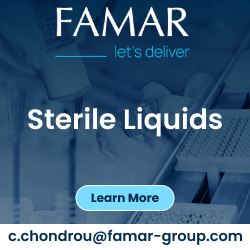
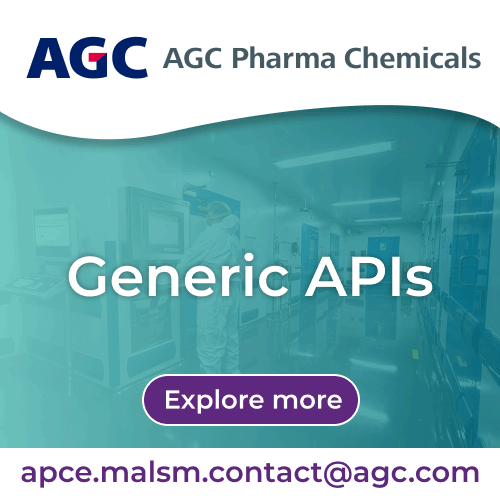
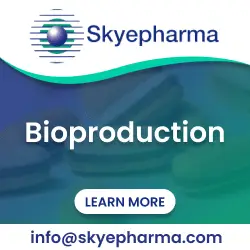
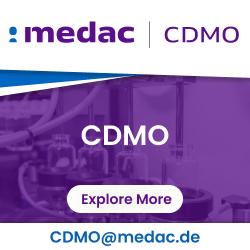
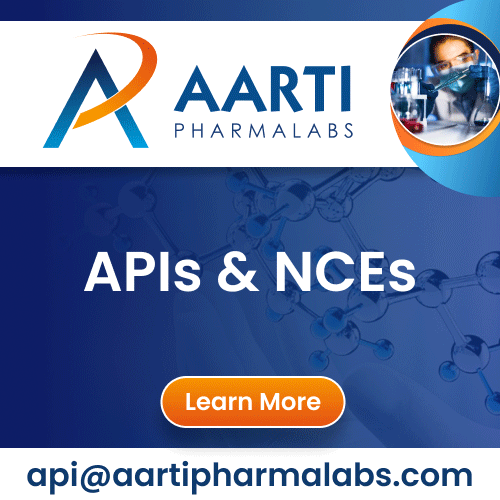
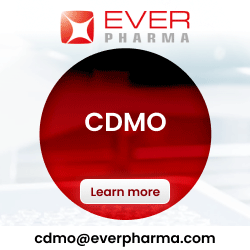




 AbbVie CDMO has been working with global companies to develop, manufacture & scale biopharmaceutical products.
AbbVie CDMO has been working with global companies to develop, manufacture & scale biopharmaceutical products.











